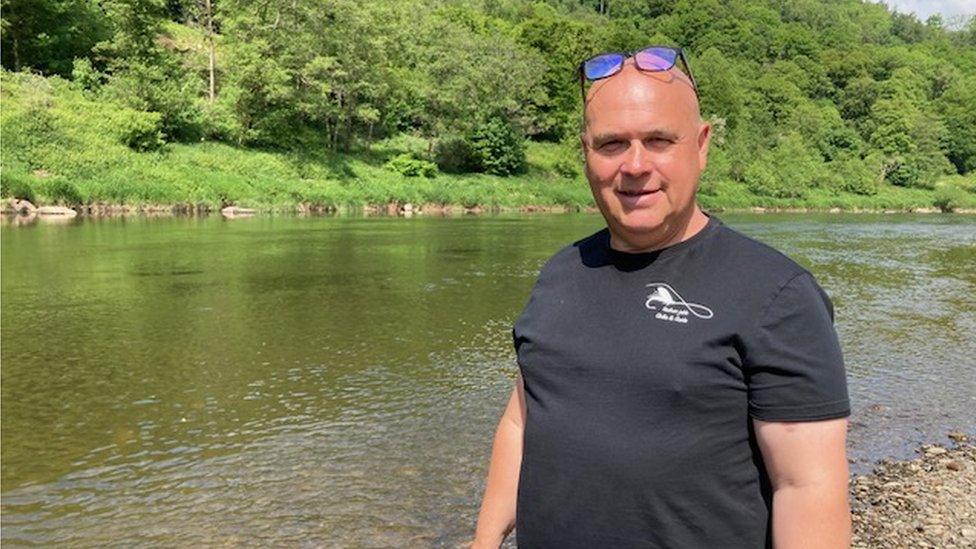Egg farmer halves pollution levels
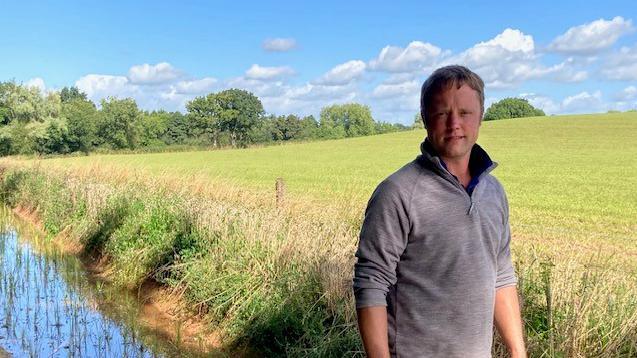
Joe Orgee recently won the Sustainable Farming category at the National Egg & Poultry Awards
At a glance
A series of pools have been dug at a chicken farm in Herefordshire with the aim of reducing pollution
The pools slow down water and trap nutrients before they enter streams
Conservation group the Wye and Usk Foundation said it had seen phosphorous levels in local brooks more than halved
- Published
A conservation group has said an environmental project at a chicken farm in Herefordshire has halved the amount of pollution entering local watercourses.
Natural England downgraded the health of the River Wye in May after a decline in Atlantic salmon and white-clawed crayfish.
Campaigners have blamed intensive farming and sewage pollution.
A project at Joe Orgee's farm at Much Cowarne has seen 11 wetland pools created to help reduce soil loss and soak up excess nutrients before they get into streams.
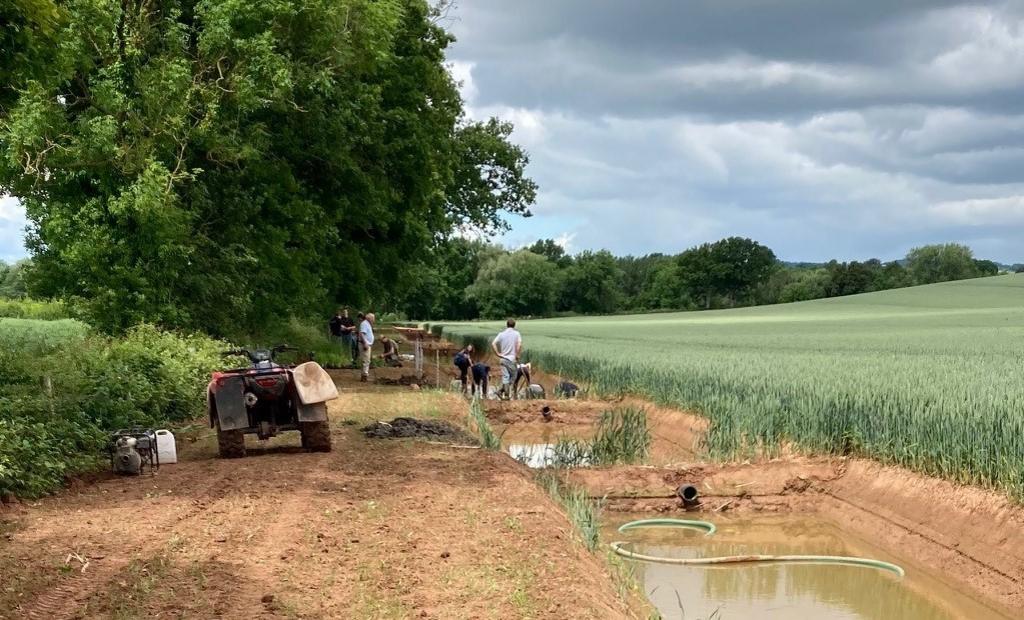
Volunteers helped to create the wetland pools
Conservation group the Wye and Usk Foundation said it had seen a 53% reduction in total phosphorous levels in nearby brooks since the work.
Mr Orgee, who has 48,000 free-range chickens on his farm, said he was already seeing the benefits of the project.
"You can see the quality of water which is coming from the sheds, you can see that there is a problem, and hopefully these plants will keep taking that out and putting clean water back," he said.
The work has been funded by Noble Foods, the firm behind the Happy Eggs brand.
Glenn Evans from the company said it would be a "test bed for future wetlands elsewhere".
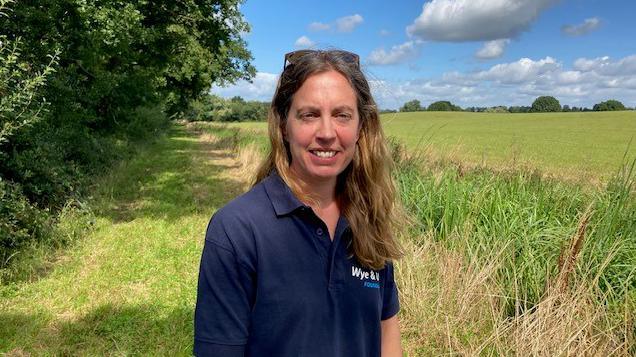
Bridie Whittle, from the Wye and Usk Foundation, said the project could be replicated on other farms
The work has seen 11 pools dug along a 300m-long stretch of land, which loosely resemble a series of canal locks.
Together, they slow down water and trap nutrients as run-off from fields makes its way down through the pools.
Bridie Whittle, from the Wye and Usk Foundation, which has carried out the work, said it was an affordable solution and could be replicated on other farms.
"We know that we have a legacy phosphate problem in this county and we'd love to see these in as many places as we can fit them," she said.
Mr Evans said river health was an extremely important issue across the UK, meaning "any lessons that we learn here we can expand to other areas".
Related topics
Related Internet Links
- Published12 August 2023
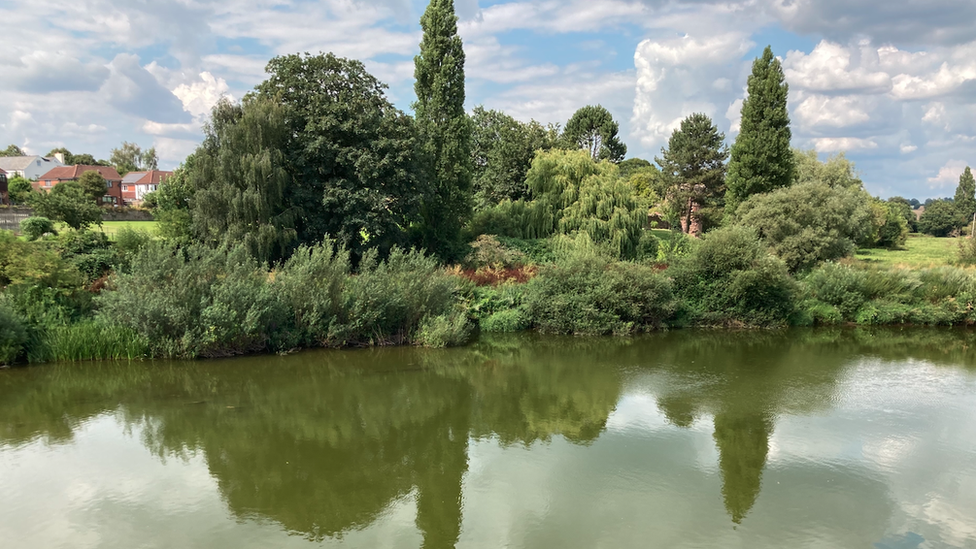
- Published30 May 2023
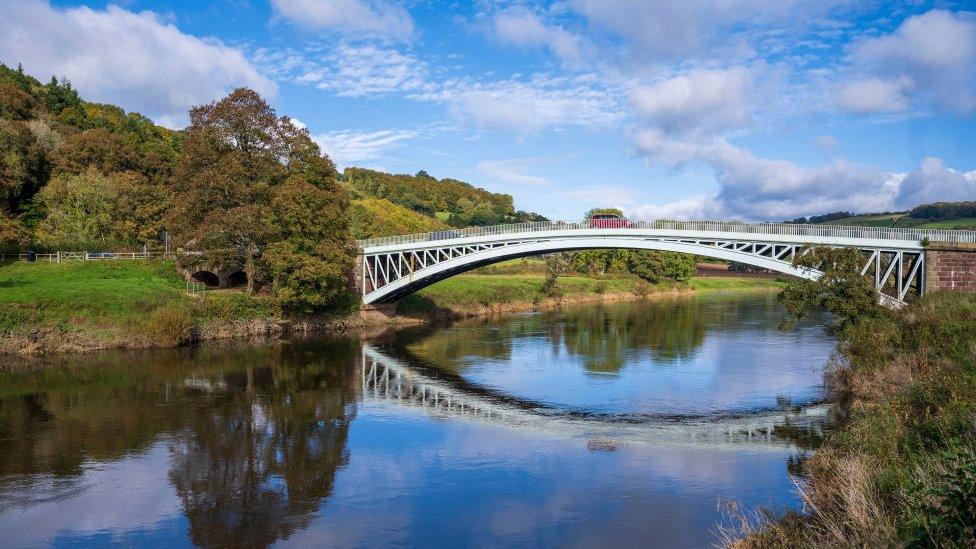
- Published14 August 2023
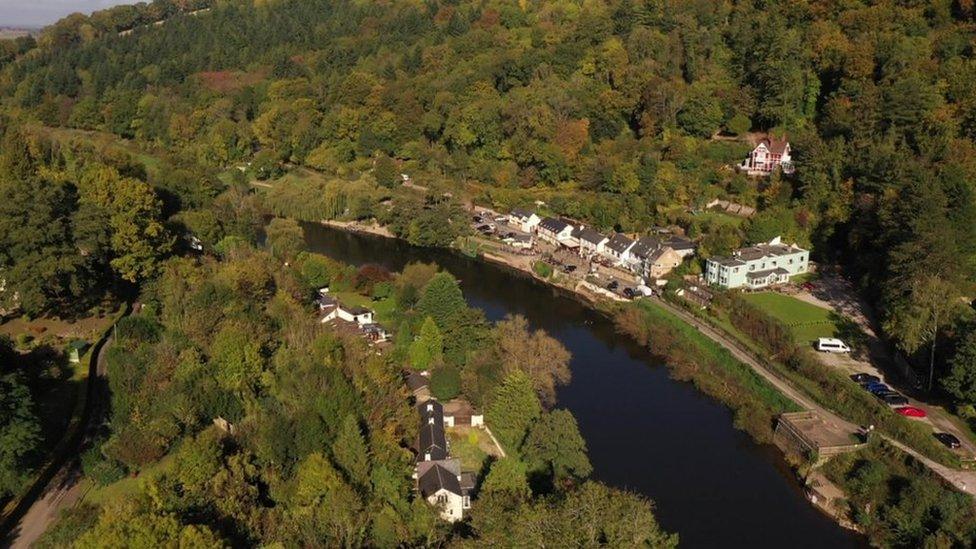
- Published26 May 2023
